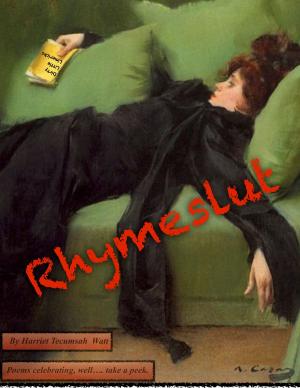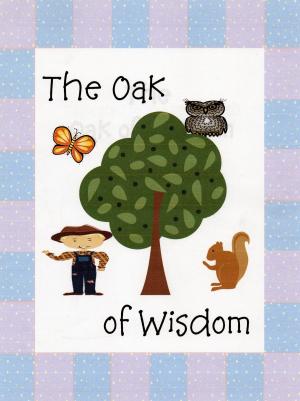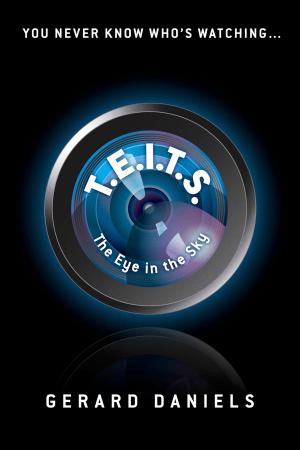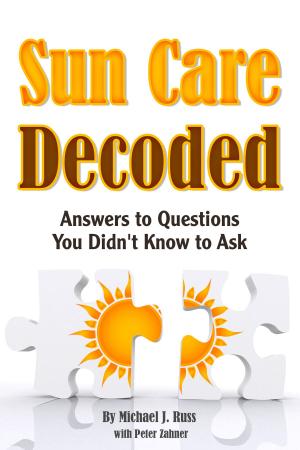The Ukulele Entertainer
Powerful Pointers for Players and Performers
Nonfiction, Entertainment, Music, Instruments & Instruction, Instruction & Study, Theory & Criticism| Author: | Ralph Shaw | ISBN: | 9781623092016 |
| Publisher: | BookBaby | Publication: | December 12, 2011 |
| Imprint: | Language: | English |
| Author: | Ralph Shaw |
| ISBN: | 9781623092016 |
| Publisher: | BookBaby |
| Publication: | December 12, 2011 |
| Imprint: | |
| Language: | English |
Be the Best “Ukulele Entertainer” You Can Be! Could your playing, singing or onstage banter use a little fine-tuning? All string instrument performers will benefit from this practical, informative book. Going far beyond other ukulele publications, this helpful guide shows the aspiring ukulele star of any age how to: • Put strings on a ukulele, correctly • Play three styles of triplet strum • Know where to look when you sing • Tackle nerves and stage fright • Start and run a ukulele club • Remember lyrics and sing on pitch • Create a killer set list, and much, much more Learn from a seasoned pro how to relax and improvise, introduce more dynamics into your playing, even—just for fun—how to make ukulele wine! You’ll get some lessons in musical history and be royally entertained by the “King of the Ukulele” himself. Welcome to The Ukulele Entertainer, a book to help ukulele players with their playing and performance skills. This book shows all levels of ukulele player how to play better and includes tips on improving your chances of success when you get out in front of an audience. Much of the information is also useful for other musicians and entertainers who are not ukulele players. The pieces have been placed in sections. Since this is a book primarily for ukulele players, the most obvious category would be advice on how to play the ukulele. But, surprisingly perhaps, Ralph doesn't dwell on the playing of the instrument as much as you might expect. Achieving excellence as an entertainer or musical performer requires knowledge and sets of skills far beyond musical techniques. How often has the ukulele player come up against stage fright or wondered where in the audience to look while singing? Therefore, numerous pages are dedicated to the teaching of performance ability. Most ukulele players are singers too. Singing looks so easy when done well. But only those who have persistently devoted themselves to the improvement of vocal technique understand how the playing of a stringed instrument is less than half the battle. Becoming a better singer is a big part of the ukulele player’s education, so you’ll find chapters to help with singing on pitch and the delivery of lyrics. Ralph Shaw's writing comes across in the same terms as his performances. Elements of humour, storytelling and whimsy woven throughout. These flashes of pattern and colour will help the reader to absorb and remember the lessons. You’ll also find the occasional chapter that won’t help you improve either your playing or performance abilities. However, you will learn how to make an undrinkable wine from an old ukulele, partake in the joys of making music through the eyes and ears of a fifteen-year-old girl, and discover “Sithee,” the Yorkshire equivalent of the Hawaiian word “Aloha.” You may choose to think of these pieces as moments of inspirational literature. If you don’t, and instead you view them as items of pointless frivolity, then one should ask, If we can’t be allowed some time and space for reckless self-abandon, then why are we playing the ukulele in the first place?
Be the Best “Ukulele Entertainer” You Can Be! Could your playing, singing or onstage banter use a little fine-tuning? All string instrument performers will benefit from this practical, informative book. Going far beyond other ukulele publications, this helpful guide shows the aspiring ukulele star of any age how to: • Put strings on a ukulele, correctly • Play three styles of triplet strum • Know where to look when you sing • Tackle nerves and stage fright • Start and run a ukulele club • Remember lyrics and sing on pitch • Create a killer set list, and much, much more Learn from a seasoned pro how to relax and improvise, introduce more dynamics into your playing, even—just for fun—how to make ukulele wine! You’ll get some lessons in musical history and be royally entertained by the “King of the Ukulele” himself. Welcome to The Ukulele Entertainer, a book to help ukulele players with their playing and performance skills. This book shows all levels of ukulele player how to play better and includes tips on improving your chances of success when you get out in front of an audience. Much of the information is also useful for other musicians and entertainers who are not ukulele players. The pieces have been placed in sections. Since this is a book primarily for ukulele players, the most obvious category would be advice on how to play the ukulele. But, surprisingly perhaps, Ralph doesn't dwell on the playing of the instrument as much as you might expect. Achieving excellence as an entertainer or musical performer requires knowledge and sets of skills far beyond musical techniques. How often has the ukulele player come up against stage fright or wondered where in the audience to look while singing? Therefore, numerous pages are dedicated to the teaching of performance ability. Most ukulele players are singers too. Singing looks so easy when done well. But only those who have persistently devoted themselves to the improvement of vocal technique understand how the playing of a stringed instrument is less than half the battle. Becoming a better singer is a big part of the ukulele player’s education, so you’ll find chapters to help with singing on pitch and the delivery of lyrics. Ralph Shaw's writing comes across in the same terms as his performances. Elements of humour, storytelling and whimsy woven throughout. These flashes of pattern and colour will help the reader to absorb and remember the lessons. You’ll also find the occasional chapter that won’t help you improve either your playing or performance abilities. However, you will learn how to make an undrinkable wine from an old ukulele, partake in the joys of making music through the eyes and ears of a fifteen-year-old girl, and discover “Sithee,” the Yorkshire equivalent of the Hawaiian word “Aloha.” You may choose to think of these pieces as moments of inspirational literature. If you don’t, and instead you view them as items of pointless frivolity, then one should ask, If we can’t be allowed some time and space for reckless self-abandon, then why are we playing the ukulele in the first place?















